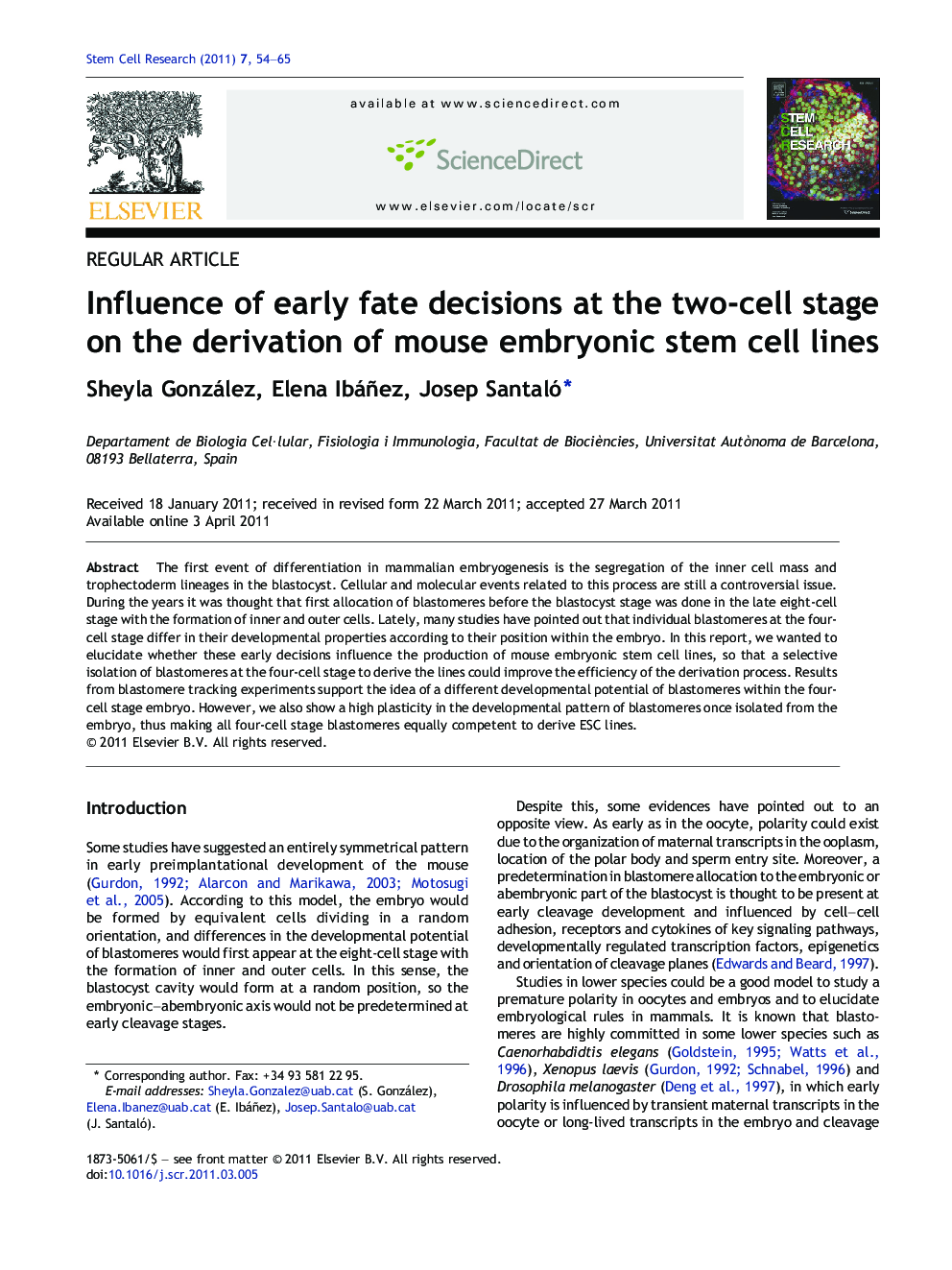| Article ID | Journal | Published Year | Pages | File Type |
|---|---|---|---|---|
| 2094444 | Stem Cell Research | 2011 | 12 Pages |
The first event of differentiation in mammalian embryogenesis is the segregation of the inner cell mass and trophectoderm lineages in the blastocyst. Cellular and molecular events related to this process are still a controversial issue. During the years it was thought that first allocation of blastomeres before the blastocyst stage was done in the late eight-cell stage with the formation of inner and outer cells. Lately, many studies have pointed out that individual blastomeres at the four-cell stage differ in their developmental properties according to their position within the embryo. In this report, we wanted to elucidate whether these early decisions influence the production of mouse embryonic stem cell lines, so that a selective isolation of blastomeres at the four-cell stage to derive the lines could improve the efficiency of the derivation process. Results from blastomere tracking experiments support the idea of a different developmental potential of blastomeres within the four-cell stage embryo. However, we also show a high plasticity in the developmental pattern of blastomeres once isolated from the embryo, thus making all four-cell stage blastomeres equally competent to derive ESC lines.
Research highlights► Early blastomere fate as a determinant of mouse ESC derivation efficiency. ► Descendants of four-cell stage blastomeres are preferably allocated in the blastocyst. ► All four-cell stage blastomeres are equally able to produce ESC lines after isolation.
